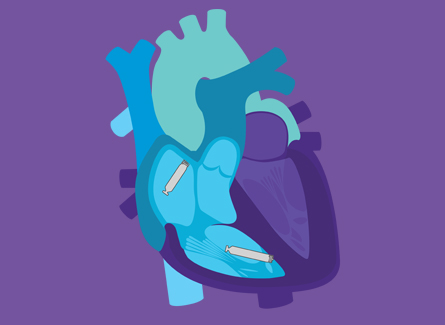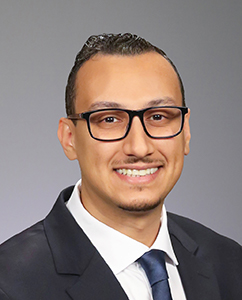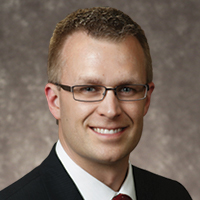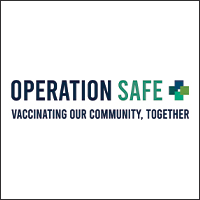A revolution in rhythm: Leadless pacemaker offers safer, flexible pacing
August 28, 2025

Mahmoud Elsayed, MD
The implantation of the Northland’s first dual-chamber leadless pacemaker this spring marked not just a procedural milestone for NKC Health but a glimpse into future possibilities in electrophysiology.
The Abbott Aveir DR system offers advanced capabilities for patients who require atrial and ventricular pacing, without the obstacles associated with conventional pacemaker leads.
“This technology expands who we can treat,” said Mahmoud Elsayed, MD, a cardiologist with NKC Health Heart Care. “Some patients only need atrial pacing, and now we can offer that with a leadless option that’s safer, less invasive and requires no skin incision.”
Unlike traditional pacemakers, the Aveir system is comprised of two small, capsule-like units. One device is placed in the right atrium and the other in the right ventricle. They can be delivered through the femoral vein in a minimally invasive procedure done in the Cardiac Cath Lab, not an operating room.
“What’s groundbreaking is the ability to implant the atrial and ventricular devices separately, even years apart, and still maintain AV synchrony,” said Jennifer Moravac, BSN, RN, director of the Cardiac Cath Lab and Outpatient Procedures. “This flexibility means we can meet a patient’s needs as their condition evolves.”
This system has a particular upside for young patients who might later need an upgrade from single- to dual-chamber pacing.
“Lead extraction is high risk, especially after 10 years, when pacemaker leads typically need to be replaced,” Jennifer said. “This system significantly reduces that danger.”
Not having leads eliminates many risks tied to conventional systems, including infection, hematomas and mechanical failure in the leads. With no scar or visible bump under the skin and fewer motion restrictions during recovery, the leadless system improves patient comfort and aesthetics.
“Patients recover faster, maintain their activity levels and are far less likely to face complications,” Dr. Elsayed said. “For many, it’s life-changing.”


